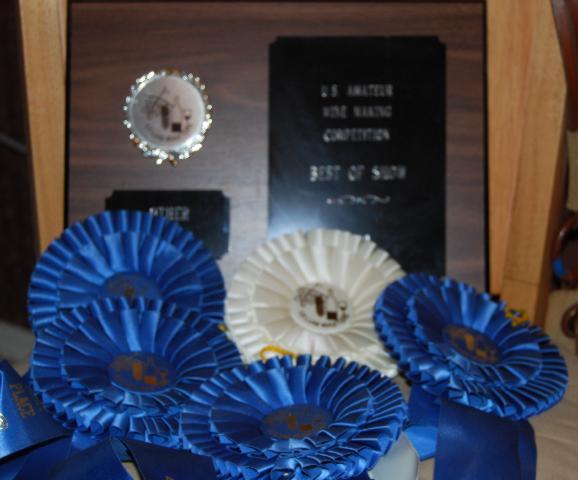- Dec 1, 2010
- 250
- 3
- 111
Quote:
I've been lucky (so far) not to have had any wines that made me ill. I have had an occasional one that had gone off (hydrogen sulfide) in a blackberry wine, or had MEK or other nasty tastes/smells in a strawberry wine. I didn't drink them so don't know if they would have made me sick.
Not sure how "lucky" you've been since I doubt that any of it would have made you ill. Off tastes and smells are completely subjective, but I do however no what you are getting at. I also disinfect my counter-tops, but don't use any raw meats in my wines so I don't agree with the analogy.
Many people think that the fermentation will kill ickies in wine, when really the fermentation process is simply converting sugar to alcohol and carbon dioxide gas. Alcohol is a sterilant to some degree, but in the level it is found in wine, it wouldn't be protection against "bad stuff". Anyone seen the movie "Arsenic and Old Lace"?
Actually, it is not that simple at all. Yeast converts sugar to alcohol, and carbon dioxide, and hydrogen sulfide, and many other bi-products. Still not sure what "bad stuff" you are referring to? I've heard of the movie and I don't think any of the poisons came from homebrewing the elderberry wine. Again, if you are aware of any "bad stuff" that could make us ill, please let me know.
It's simply not worth it to me to spend my time and money making wine only to have it go bad and not be drinkable or "potentially" harmful.
This is a good point. Most chemicals are used to simply make the process easier and more consistent, not to protect from anything harmful.
I'm not trying to be an alarmist. But I do think that several centuries of winemaking, and several thousands of professional winemaker can't be wrong; if that's the way they do it, can't be bad!

As I'm sure you know, wine has been made for over 6000 years, most of that without any chemical additives. Several thousand winemakers, as I previously stated, simply want to make the process easier and more consistent and cost effective for large scale operations. Personally, I'll leave the potassium metabisulfite to the photographers.
I've been lucky (so far) not to have had any wines that made me ill. I have had an occasional one that had gone off (hydrogen sulfide) in a blackberry wine, or had MEK or other nasty tastes/smells in a strawberry wine. I didn't drink them so don't know if they would have made me sick.
Not sure how "lucky" you've been since I doubt that any of it would have made you ill. Off tastes and smells are completely subjective, but I do however no what you are getting at. I also disinfect my counter-tops, but don't use any raw meats in my wines so I don't agree with the analogy.
Many people think that the fermentation will kill ickies in wine, when really the fermentation process is simply converting sugar to alcohol and carbon dioxide gas. Alcohol is a sterilant to some degree, but in the level it is found in wine, it wouldn't be protection against "bad stuff". Anyone seen the movie "Arsenic and Old Lace"?
Actually, it is not that simple at all. Yeast converts sugar to alcohol, and carbon dioxide, and hydrogen sulfide, and many other bi-products. Still not sure what "bad stuff" you are referring to? I've heard of the movie and I don't think any of the poisons came from homebrewing the elderberry wine. Again, if you are aware of any "bad stuff" that could make us ill, please let me know.
It's simply not worth it to me to spend my time and money making wine only to have it go bad and not be drinkable or "potentially" harmful.
This is a good point. Most chemicals are used to simply make the process easier and more consistent, not to protect from anything harmful.
I'm not trying to be an alarmist. But I do think that several centuries of winemaking, and several thousands of professional winemaker can't be wrong; if that's the way they do it, can't be bad!

As I'm sure you know, wine has been made for over 6000 years, most of that without any chemical additives. Several thousand winemakers, as I previously stated, simply want to make the process easier and more consistent and cost effective for large scale operations. Personally, I'll leave the potassium metabisulfite to the photographers.







